Molly Fish
Molly Fish:
Tank Size:20 gallons (90 l)
Size:minimum of 4
Temperature:75-80°F (24-27°C)
Lifespan:up to 5 years
Size:up to 4.5 inches (11 cm)
pH:7.5-8.5
Hardness:15-30 dH
Ammonia:0 ppm
Nitrite:0 ppm
Nitrate:<30 ppm
Popular Types of Mollies:
The types are divided by size and shape into shortfin mollies and sailfin mollies.
Shortfin mollies resemble platies with deeper chests. Sailfin mollies have larger dorsal and caudal fins, and they include the lyretail group.
1. Common molly (Poecilia sphenops)
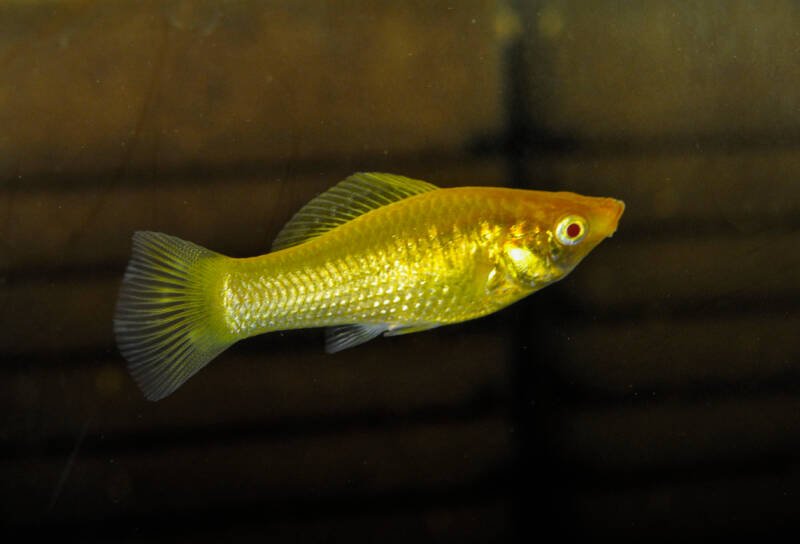
The common molly represents the most abundant molly type. They come in a variety of colours, including the famous black molly.
Black mollies represent one of the genuinely jet-black fish available for the freshwater aquarium.
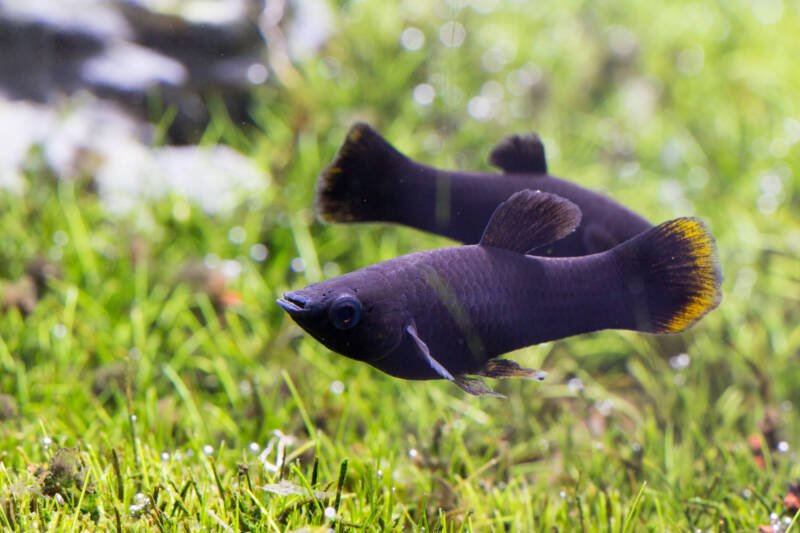
2. Sailfin mollies (Poecilia latipinna)
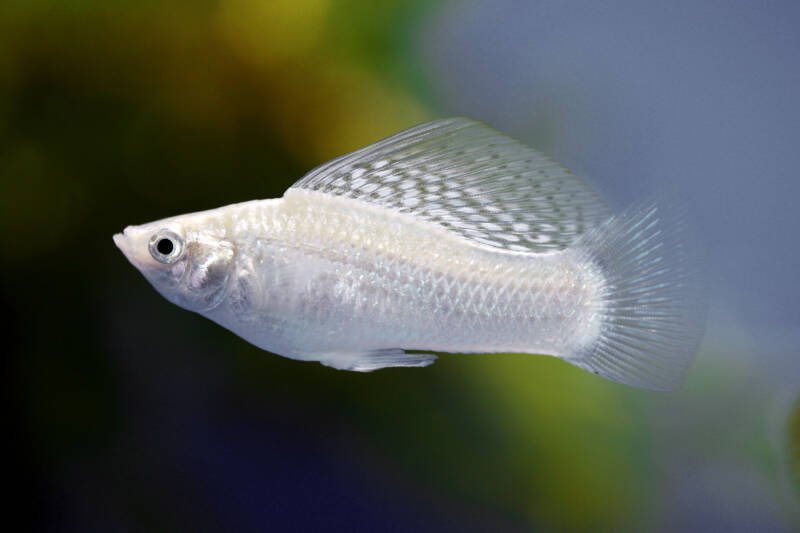
Sailfin mollies carry a prominent dorsal fin. The sail extends high over the fish’s back, drifting over to the tail in a lazy sail shape.
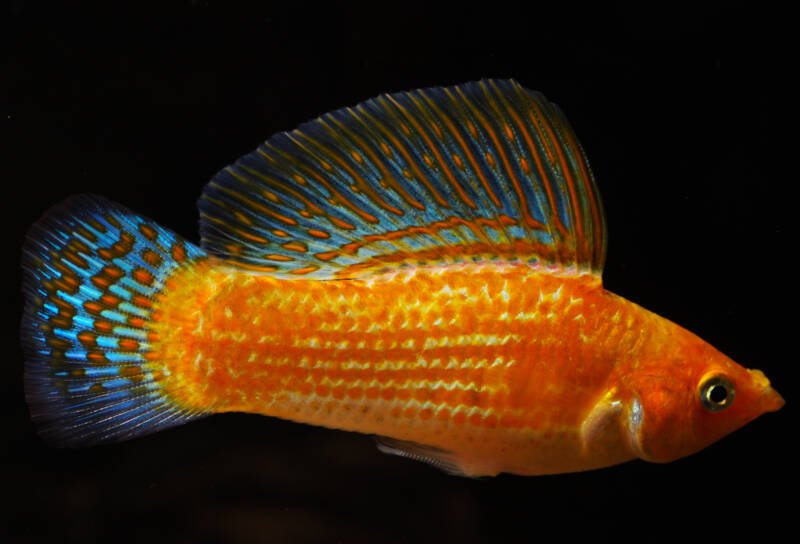
You can choose from different patterns and colours, including a black type.
3. Lyretail variation
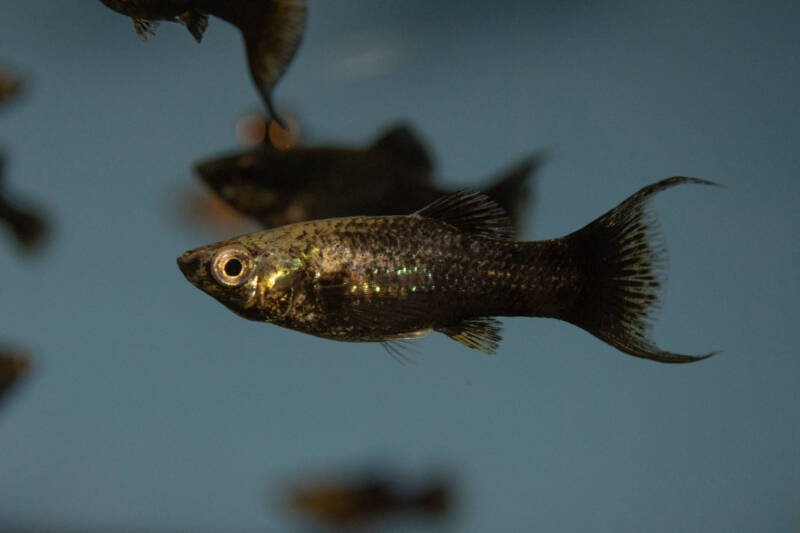
Rather than elongating the dorsal fin, lyretail mollies exaggerate their caudal fin. The very ends narrow to prominent points that sweep behind the fish as they swim.
You get the same delicate points off the dorsal and anal fins, making these elegant mollies.
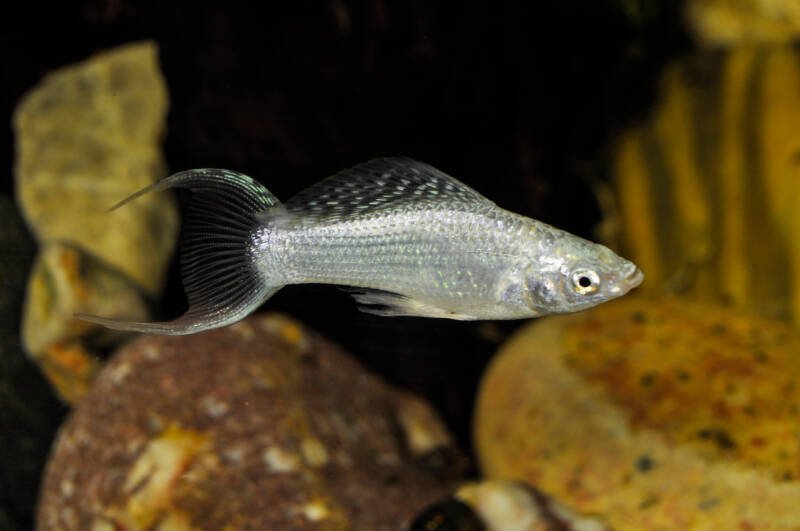
4. Balloon mollies
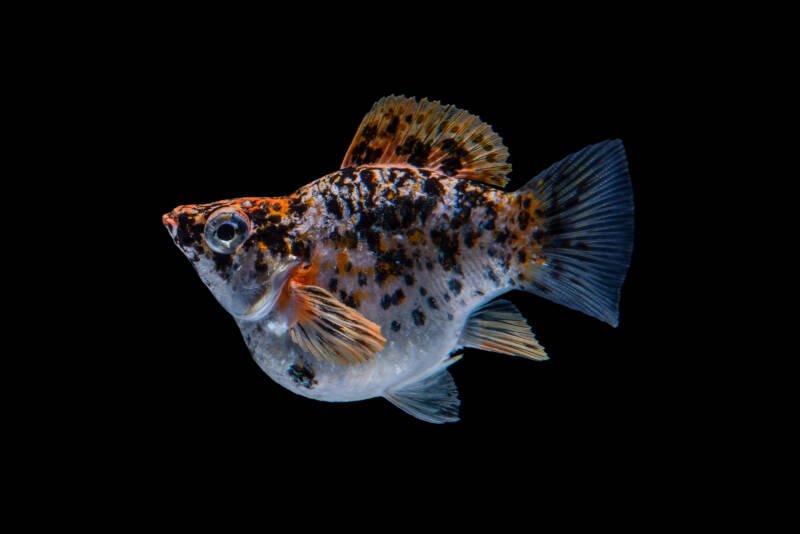
Balloon mollies are a subject for debate. Man-made varieties, they have distended abdomens and come in three colour options (black, yellow, and white).
The prominent belly makes them slower swimmers, which many argue is cruel. DON’T put them with aggressive feeders.
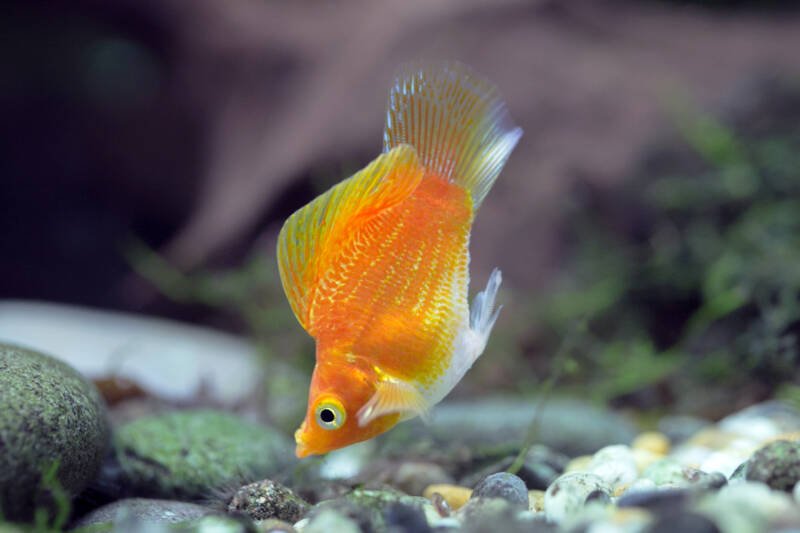
Size
In their native habitat, mollies reach a standard length of 5 inches (13 cm).
However, in captivity, you’ll have to settle for a slightly smaller expectation. When kept in tanks, mollies range between 3-4 inches (7-10 cm).
Some of this disparity comes from the captive breeding process. Most mollies in the pet trade are cultivated in Asia. There, it’s cheaper to raise them in tanks of brackish water.
The fish survive, but the sudden shock of a freshwater tank hampers their kidneys and slows down their growth.
Molly Lifespan
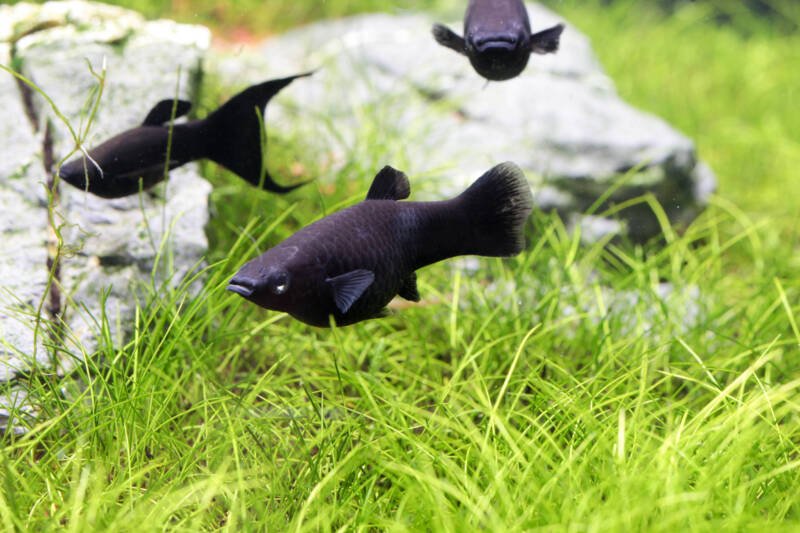
Mollies live an average of 3-4 years. With pristine aquarium management, you might see that lifespan extends up to 5 years.
Luckily, these livebearers are so easy to breed, you’ll have plenty of generations to replenish your tank.
Popular Types of Mollies
The types are divided by size and shape into shortfin mollies and sailfin mollies.
Shortfin mollies resemble platies with deeper chests. Sailfin mollies have larger dorsal and caudal fins, and they include the lyretail group.
1. Common molly (Poecilia sphenops)

The common molly represents the most abundant molly type. They come in a variety of colors, including the famous black molly.
Black mollies represent one of the genuinely jet-black fish available for the freshwater aquarium.

2. Sailfin mollies (Poecilia latipinna)

Sailfin mollies carry a prominent dorsal fin. The sail extends high over the fish’s back, drifting over to the tail in a lazy sail shape.

You can choose from different patterns and colors, including a black type.
3. Lyretail variation

Rather than elongating the dorsal fin, lyretail mollies exaggerate their caudal fin. The very ends narrow to prominent points that sweep behind the fish as they swim.
You get the same delicate points off the dorsal and anal fins, making these elegant mollies.

4. Balloon mollies

Balloon mollies are a subject for debate. Man-made varieties, they have distended abdomens and come in three color options (black, yellow, and white).
The prominent belly makes them slower swimmers, which many argue is cruel. DON’T put them with aggressive feeders.

Size
In their native habitat, mollies reach a standard length of 5 inches (13 cm).
However, in captivity, you’ll have to settle for a slightly smaller expectation. When kept in tanks, mollies range between 3-4 inches (7-10 cm).
Some of this disparity comes from the captive breeding process. Most mollies in the pet trade are cultivated in Asia. There, it’s cheaper to raise them in tanks of brackish water.
The fish survive, but the sudden shock of a freshwater tank hampers their kidneys and slows down their growth.
Molly Lifespan:

Mollies live an average of 3-4 years. With pristine aquarium management, you might see that lifespan extends up to 5 years.
Luckily, these livebearers are so easy to breed, you’ll have plenty of generations to replenish your tank.
Water Conditions:
The molly is a tropical freshwater fish. As such, you’ll need to invest in a quality heater for your aquarium.
Aim to keep your water temperature between the range of 75-80°F (24-27°C). If the mercury drops too low, your mollies will become lethargic.
Mollies prefer neutral to slightly alkaline waters. A pH between 7.5-8.5 works best.


Comments
Post a Comment